Climate Resilient Cereals Innovation Lab Holds Kickoff Meeting in Ethiopia
The Climate Resilient Cereals Innovation Lab hosted a launching meeting for the next phase of the project June 16–19, 2025, at Addis Ababa, Ethiopia.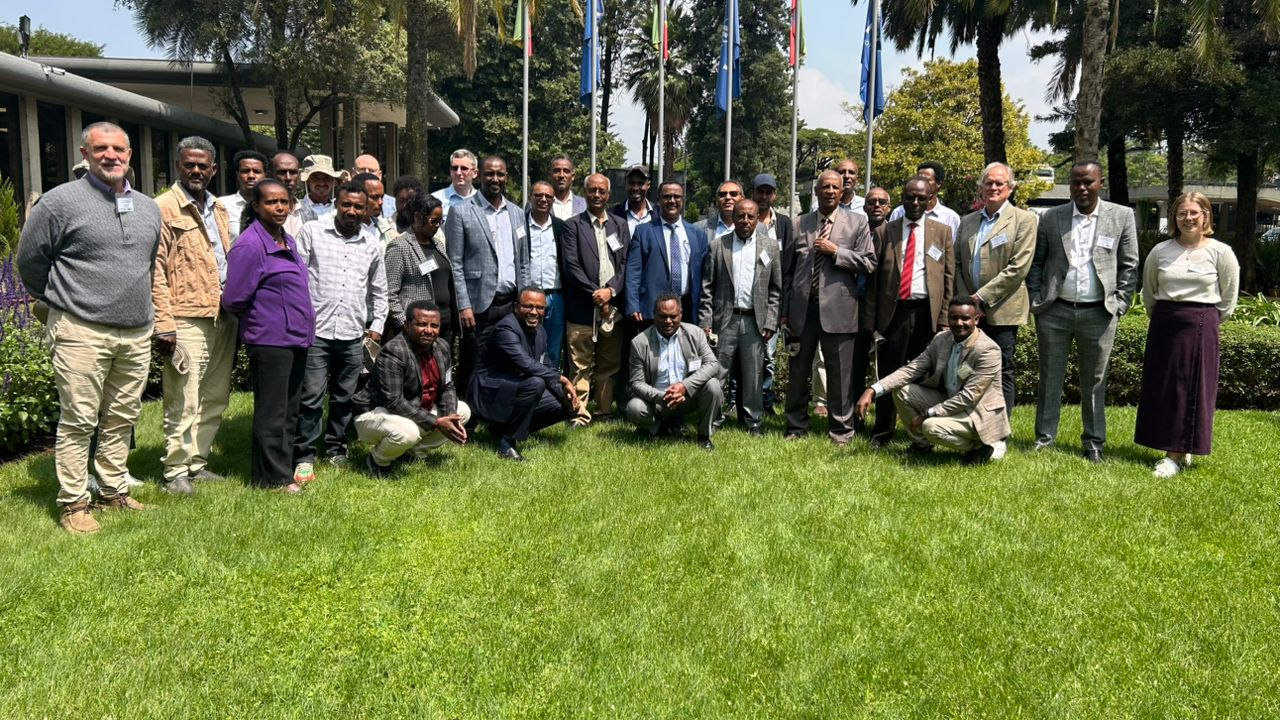
The Ethiopian Institute of Agricultural Research partnered with CRCIL for the event and offered a warm welcome to the attendees. CRCIL’s work in Ethiopia is a continuation of work started through the Sorghum and Millet Innovation Lab.
Dr. Fekadu Gurmu, crop research director for EIAR, provided welcoming remarks, expressing appreciation for the support EIAR received through SMIL and the continued support through CRCIL.
“We have achieved remarkable milestones,” Gurmu said. “However, we are still being challenged by various biotic and abiotic stress, and similar supports are very useful. We appreciate the CRCIL project initiative, which includes not only sorghum, but also wheat, a strategic crop for the country as a priority commodity for intervention.”
Globally, sorghum is the fifth most important cereal crop after maize, rice, wheat, and barley. On average, 60–65 million tons of sorghum are produced annually worldwide. While the United States is the top producer of sorghum worldwide, Ethiopia ranks sixth among the world’s top sorghum producers and produces the third most sorghum in Africa.
“This shows how important sorghum is for our country,” he said.
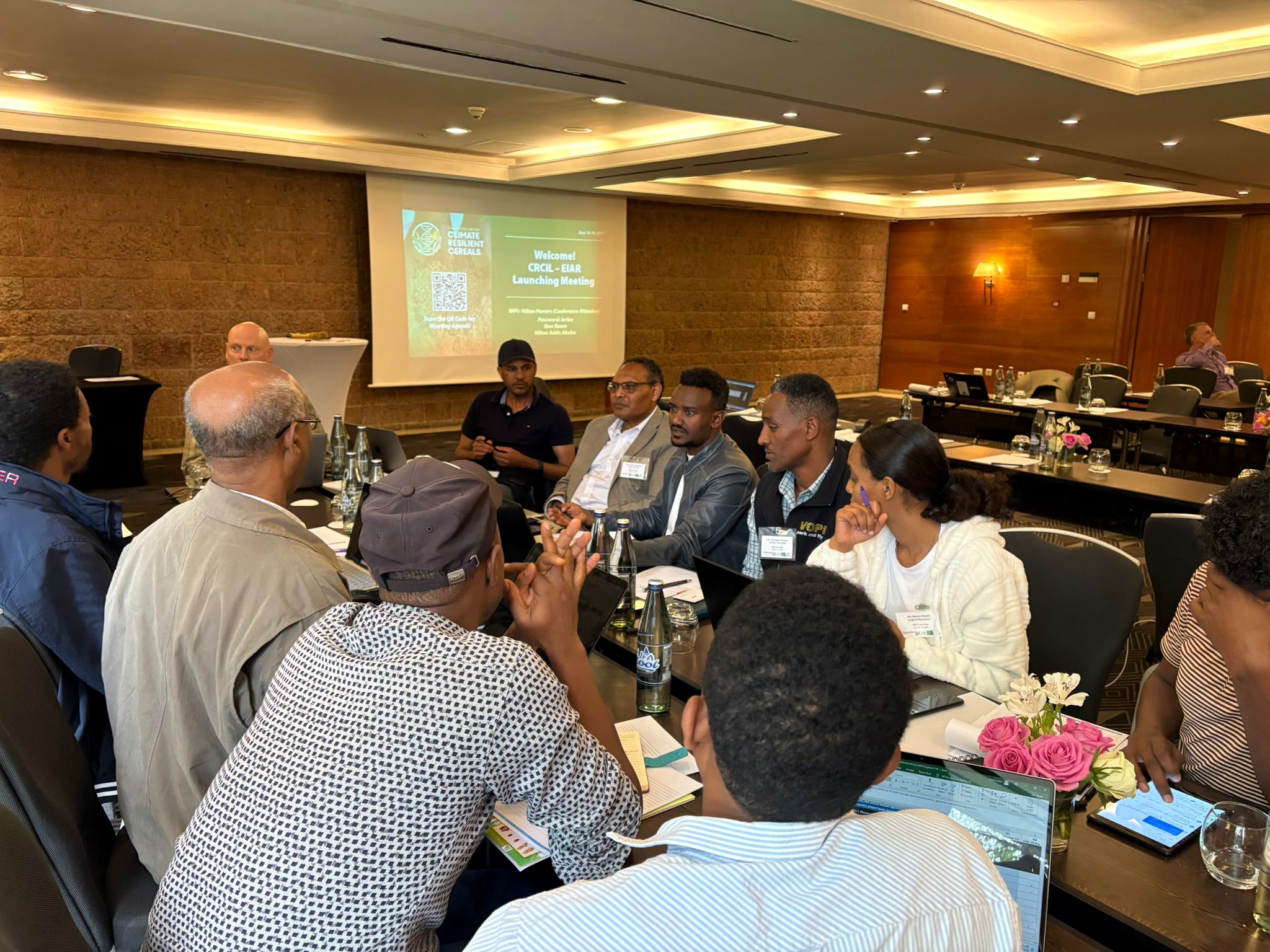 The Ethiopian research system has developed more than 66 sorghum and 34 millet varieties, as well as over 111 bread wheat and 44 durum wheat varieties. Its research efforts have also led to the development of different agronomy, plant protection, food science and related technologies, information and knowledge disseminated to end users through various platforms.
The Ethiopian research system has developed more than 66 sorghum and 34 millet varieties, as well as over 111 bread wheat and 44 durum wheat varieties. Its research efforts have also led to the development of different agronomy, plant protection, food science and related technologies, information and knowledge disseminated to end users through various platforms.
The meeting served as a launching pad for new CRCIL research projects in Ethiopia and training for project leaders to understand reporting processes and expectations for research and communication.
Nat Bascom, director of cooperative engagement for CRCIL, and Alemu Tirfessa, technical director of African engagement, presented on project planning and objectives to help the sorghum and wheat research teams get their projects off on the right path.
Bascom and Tirfessa talked about SMART goals, which are specific, measurable, attainable, realistic, and timebound. Project leadership will be asked to report on major activities every quarter between October 1 and the following September 30.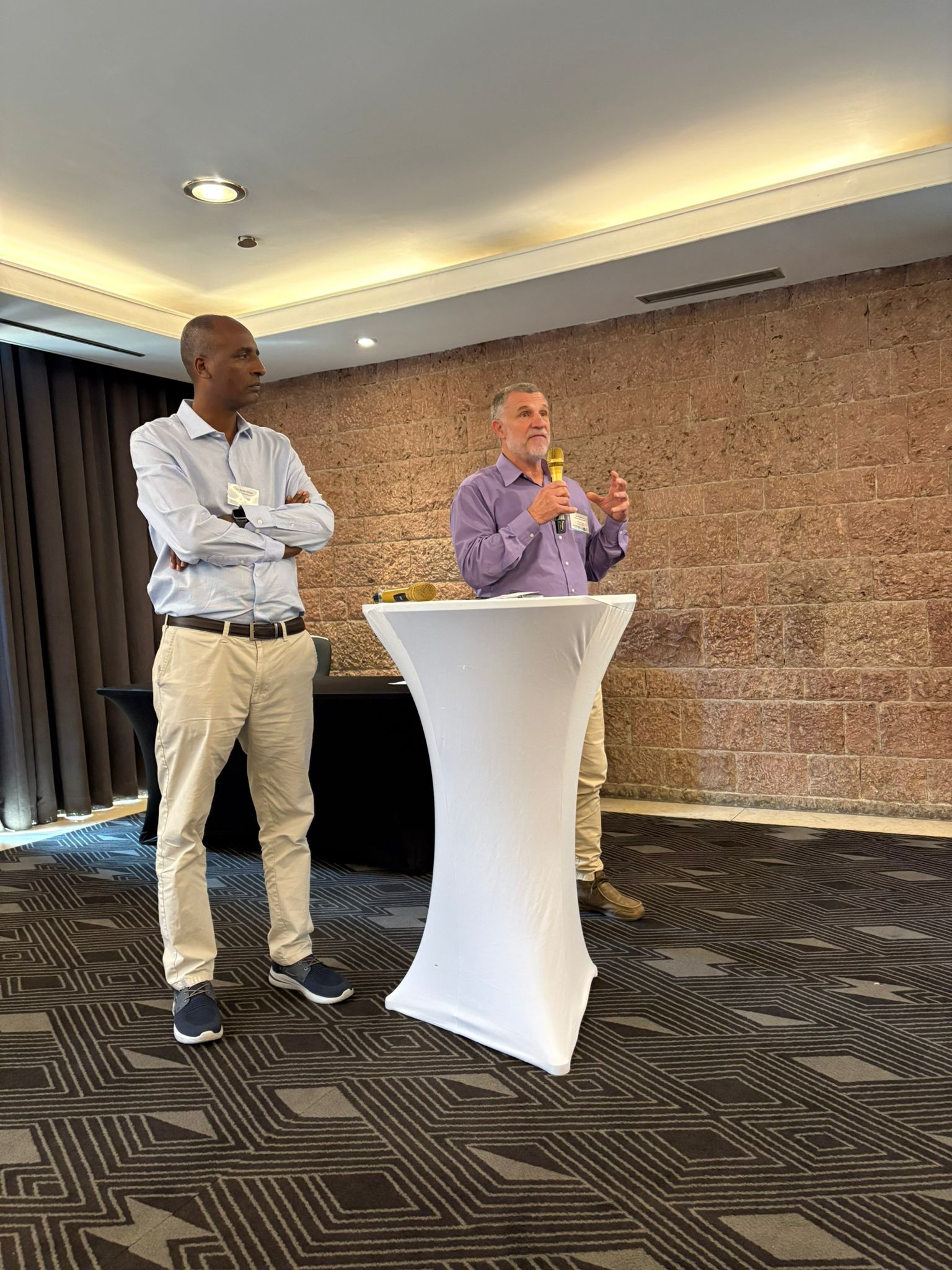
They reviewed the Piestar System and the importance of sharing success stories from the projects that can be shared with non-scientific audiences, including policymakers, donors, and the public.
Breakout sessions for the sorghum and wheat research teams focused on building narrative budgets and annual operating plans for their projects, with the opportunity to get questions answered by the CRCIL management entity.
The event also served as an opportunity to share early research wins from CRCIL’s activity over the past two years.
Dr. Negash Geleta, Ethiopian Institute for Agricultural Research Wheat team lead, presented information about the Wheat Quick Win Project in Ethiopia.
Heat and drought are two of the most common climate challenges, stressing wheat crops and adversely impacting crop production in Africa and the U.S.
This project focused on identifying heat resistance and grain quality within germplasm composed of 100 varieties from Kansas State University that have been introgressed with wild wheat relatives for abiotic stress tolerance.
Ethiopia screened the panel at three different research sites. Additionally, collaborators in Senegal have also screened the panel to identify beneficial alleles for stress tolerance. By combining multiple regions, information gained can inform future breeding decisions to improve wheat heat and drought tolerance.
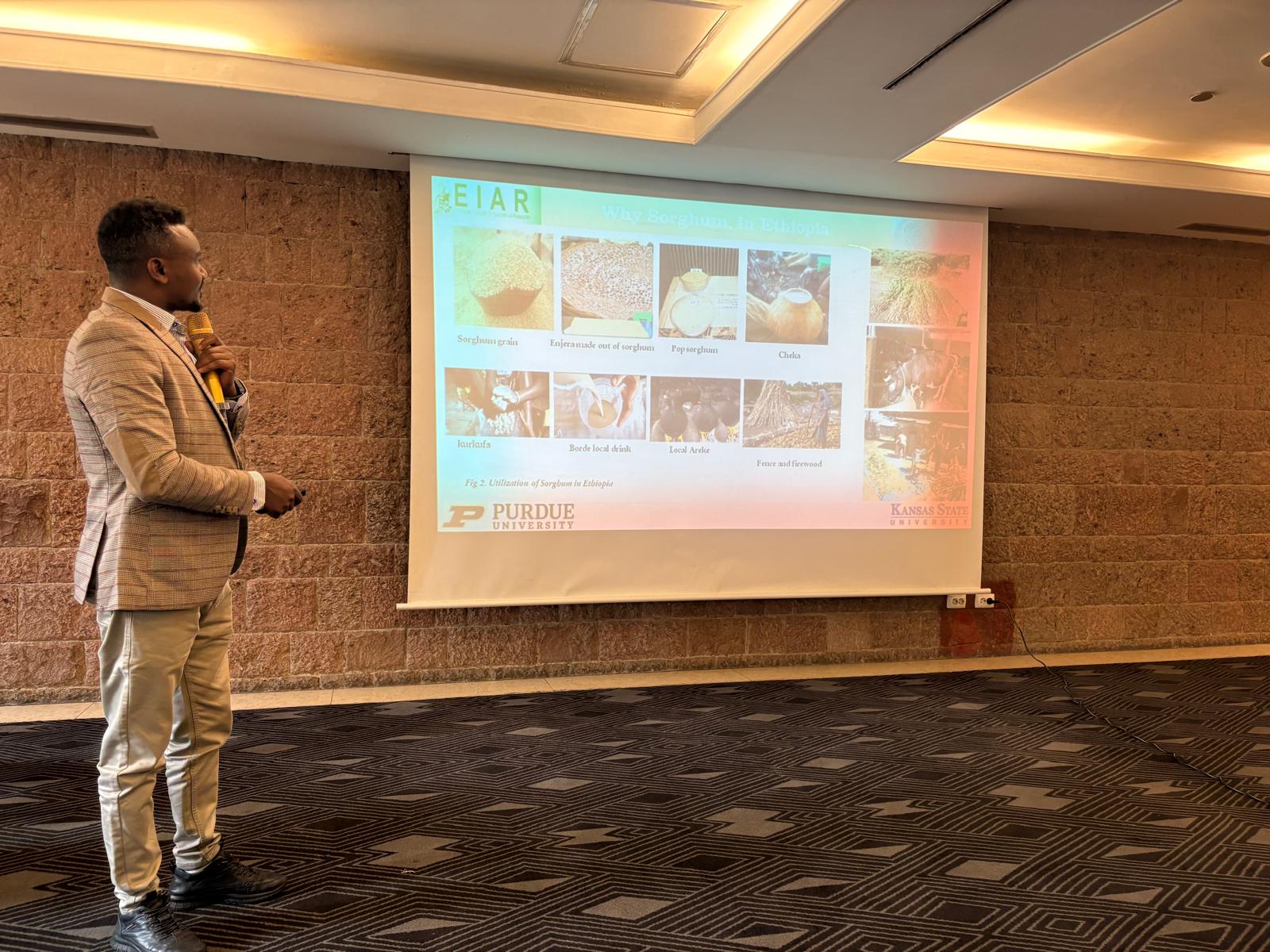 Tokuma Guta, Ethiopian Institute of Agricultural Research Sorghum team lead, presented progress on marker-based screening of a Multi-parent, Advanced Generation Inter-Cross (MAGIC) population developed from local sorghum landraces for early flowering, maturity, and adaptive traits.
Tokuma Guta, Ethiopian Institute of Agricultural Research Sorghum team lead, presented progress on marker-based screening of a Multi-parent, Advanced Generation Inter-Cross (MAGIC) population developed from local sorghum landraces for early flowering, maturity, and adaptive traits.
The project is a quick win for CRCIL with Cornell and EIAR, building on previous work from the Sorghum and Millet Innovation Lab. The MAGIC panel was planted and tissue samples collected on the 100 MAGIC founder lines for analysis in the United States. The samples will be processed for genome sequencing at 20x coverage at Cornell University.
The 100 founder lines were phenotypically evaluated during the growing season, forming a phenomic and genomic data set to identify genomic regions associated with climate-resilient traits.
EIAR is a regional breeding hub in East and Southern Africa and leads national breeding efforts for wheat and sorghum. Thanks to its long-standing collaborations with SMIL and the Gates Foundation, EIAR has substantial experience and success in these areas.
EIAR can leverage its extensive genetic diversity and advanced breeding techniques from CRCIL’s innovation network to enhance climate resilience and improve elite germplasm, with a focus on crops critical to food security and smallholder livelihoods.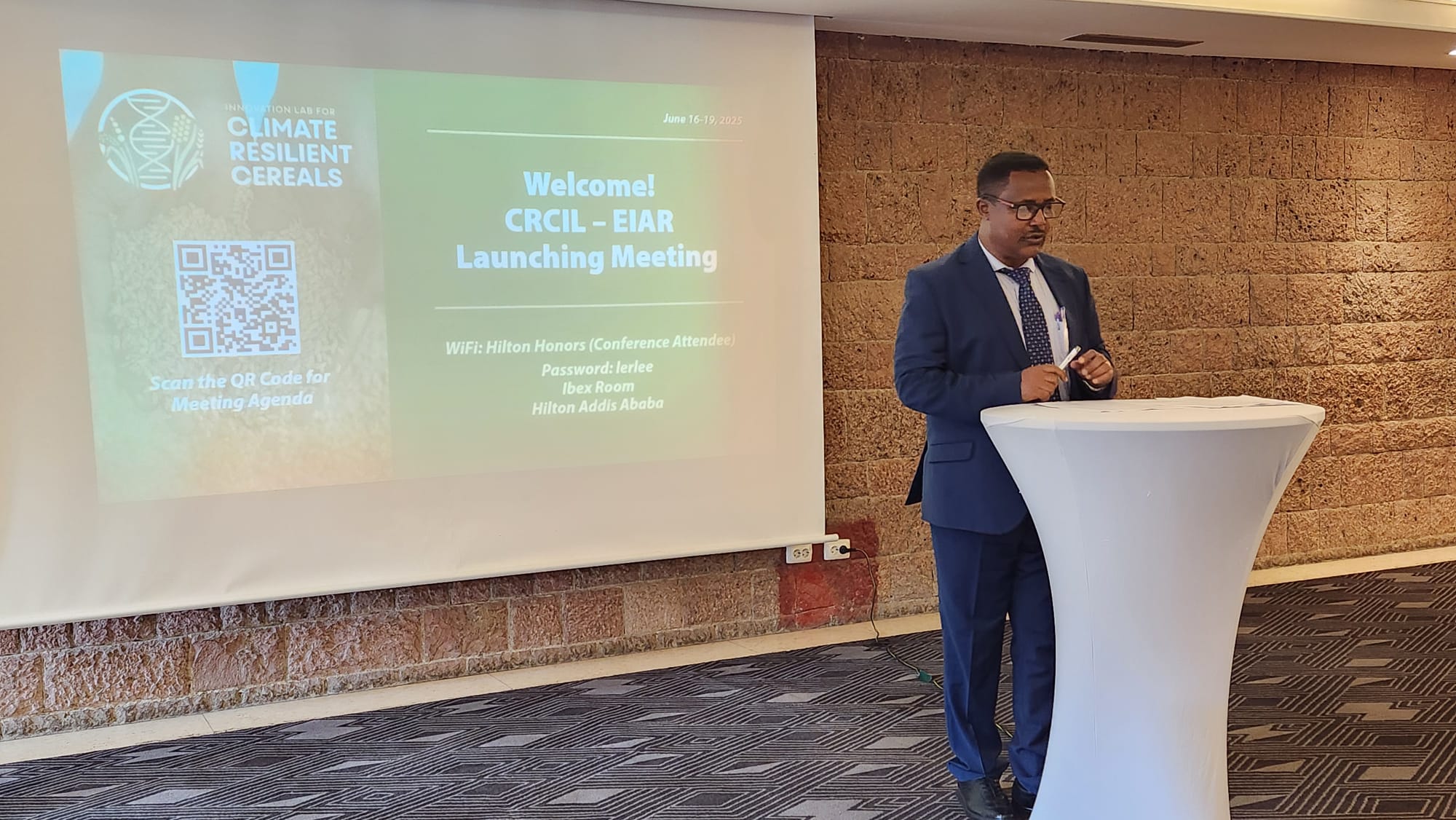
Among those in attendance were Professor Nigussie Dechassa, director general for EIAR; Drs. Diriba Geleti and Chilot Yirga, deputy directors general for EIAR; Dr. Fekadu Gurmu, EIAR crop director; Dr. Amare Fufa, EIAR-MARC director; Shimelis Alemayeu, EIAR-KARC director; Dr. Abera Deressa, chairman of the board for EIAR; Drs. Yilma Kebede and Taye Tessema, senior sorghum researchers; and Professor Kassahun Bante, senior professor from Jimma University.